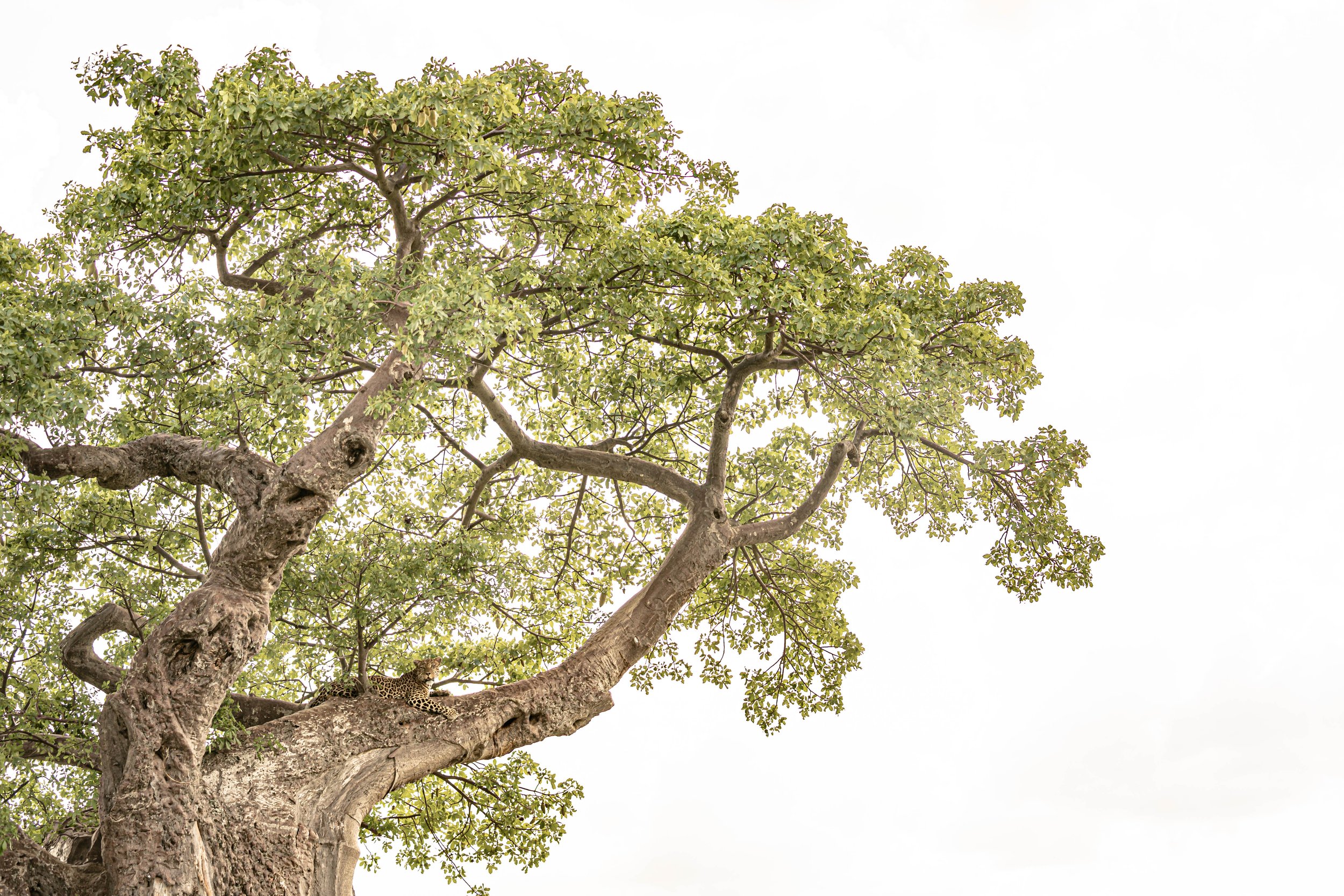De-Influencing Safari
OMG, just touched down in the heart of Africa for the most epic adventure everrr! 🦁 Can't even deal with how fierce I look in my safari gear, serving looks for the gram while these majestic creatures do their thing in the background. 📸 #SafariChic #BlessedAndGrinding 🌍*
If Internet-famous captions* like this make you want to bolt in the opposite direction, well… you’re in good company.
Join us as we talk about what really goes down on safari.
Spoiler alert: there are very few flowy white dresses in the bush. 😉
*This is an AI-generated caption. No feelings were hurt in the making of this post.

Rough terrain and open air. Photo credit: Unsplash
Mother Nature will do what She wants.
Safaris often take place in remote and sometimes harsh environments where weather conditions can be unpredictable. Extreme heat and freezing nights can impact your comfort and experience.
If a sudden rainstorm hits, you’ll be glad you’ve got your moisture-wicking layers. Opt for lightweight, breathable fabrics in neutral colors, thick socks, and good, waterproof boots.

Lion cubs on a rock in Namiri Plains, Tanzania. Photo credit: Kyle Smith, SafariSmiths Travel
Have you been working out?
Depending on the type of safari, activities such as game drives, walking safaris, or hiking may require a certain level of physical fitness. Long hours spent in vehicles or walking through rough terrain can be tiring, especially for those unaccustomed to such activities.

This woman ran from dinosaurs in 3.5” Sam Edelman pumps. While this is impressive, it’s not recommended. Bryce Dallas Howard in Jurassic World, photo credit: people.com
It can be exhausting. But by the end of the day, you’ll look every bit like the explorer you are.
You’re in their territory.
Being so close to wild animals poses inherent risks. While our professional guides prioritize safety, there's always a potential for encounters with dangerous animals. Following safety protocols and listening to the instructions of your guide is crucial.
This is not a situation for your cute wedge heels.
There are a few health risks.
Safaris may take place in regions where certain diseases are prevalent, such as malaria or other mosquito-borne illnesses. It's essential to take appropriate precautions, such as vaccinations and anti-malarial medication, and to be vigilant about personal hygiene and food safety.
Remember those tsetse flies we mentioned? They’re relentless, and their bites hurt. Insect bites and thorny vegetation are two ways for an infection to spread if you’re not careful. As for tummy troubles? We have a lot of experience with that, too. It’s why we always recommend bringing along trusted digestion medicines.
Sometimes, you just have to wait.
While safaris offer incredible opportunities to see wildlife up close, there's no guarantee of spotting every animal on your wish list. Some animals may be elusive or only active during specific times of the day, requiring patience and luck.
There are times when you feel like you’re doing a lot of waiting. But it’s like we tell our kids – sometimes it’s good to be bored. Cultivate that curiosity, observe everything around you. Can you hear the wind whispering through the grasslands? The scent of the earth after a rainstorm? (That’s called petrichor, by the way.) How does it feel to be truly present, connected to the rhythm of nature in a way that transcends the ordinary?

Being observant can lead to some pretty extraordinary opportunities… like this leopard in a tree. Can you spot him? Photo credit: Kyle Smith, SafariSmiths Travel
On safari, surrounded by the sights and sounds of the wild, you'll discover a profound sense of awe and reverence for the wonders of the natural world.
This is an experience that gets you deep in the soul, and rarely leaves after it’s over.
So allow yourself to venture outside of your comfort zone and be a traveler, not a tourist. Get in touch with the team at SafariSmiths Travel today… It’s time to plan your adventure.
